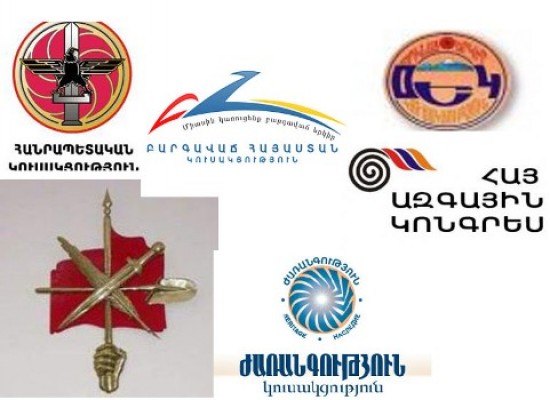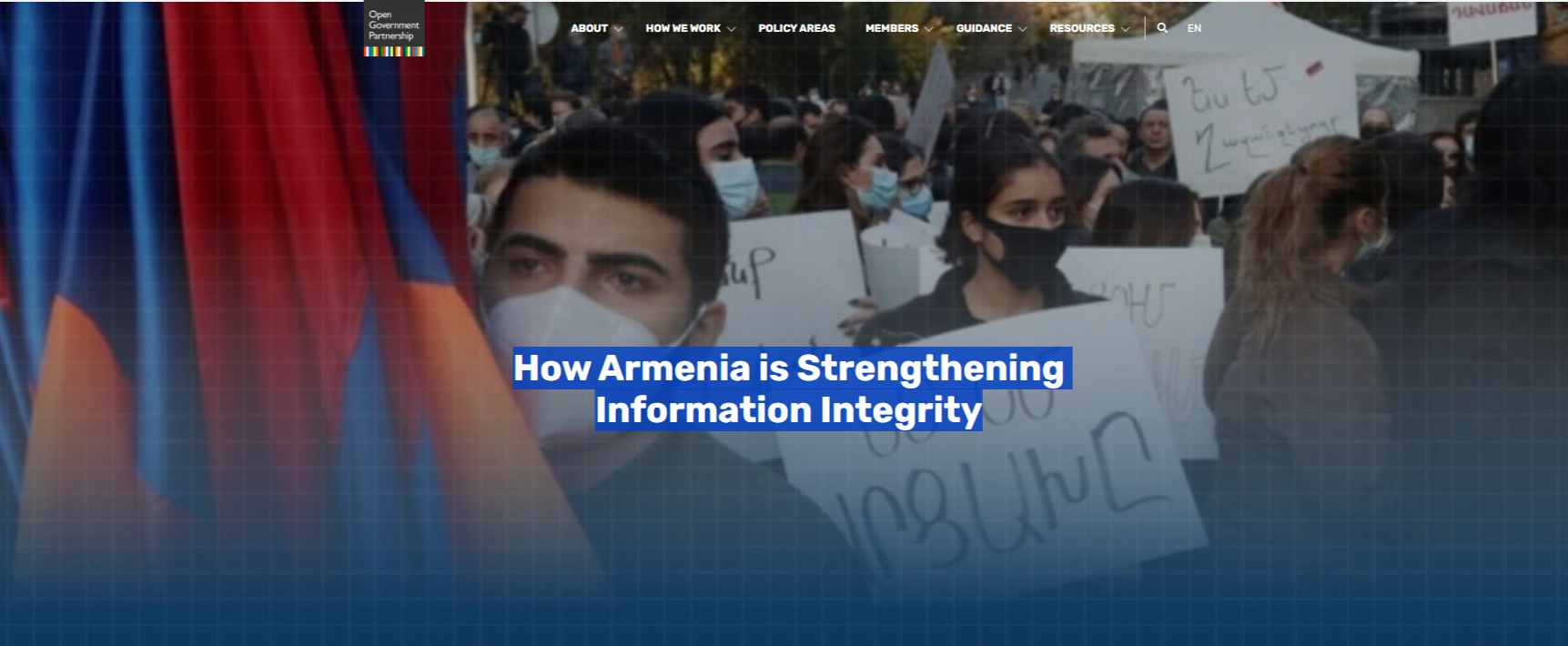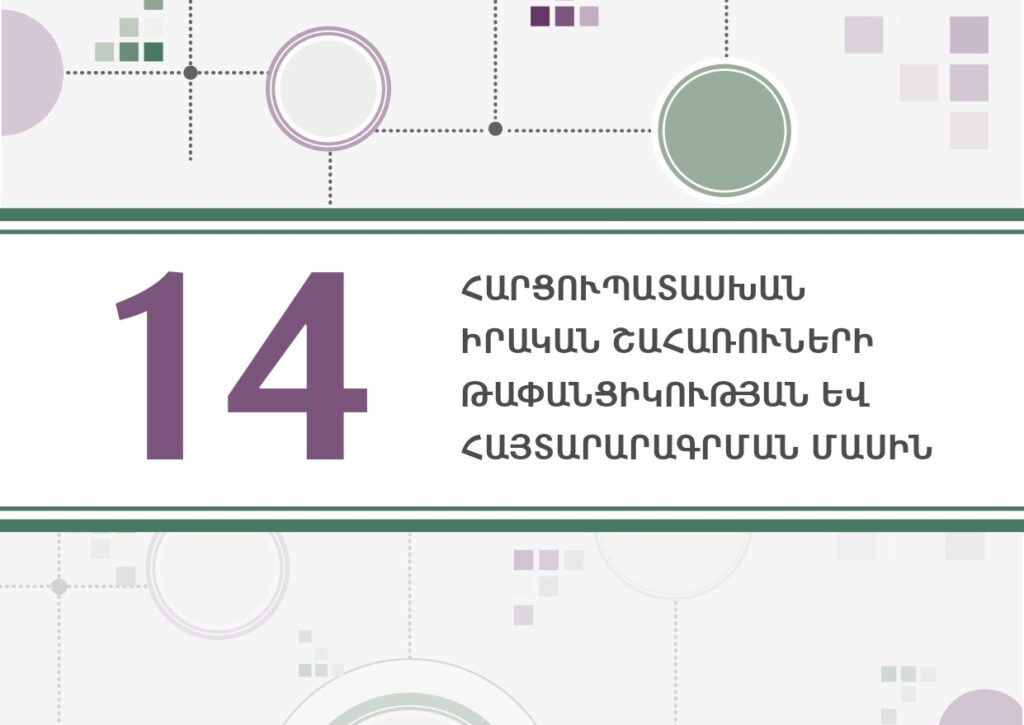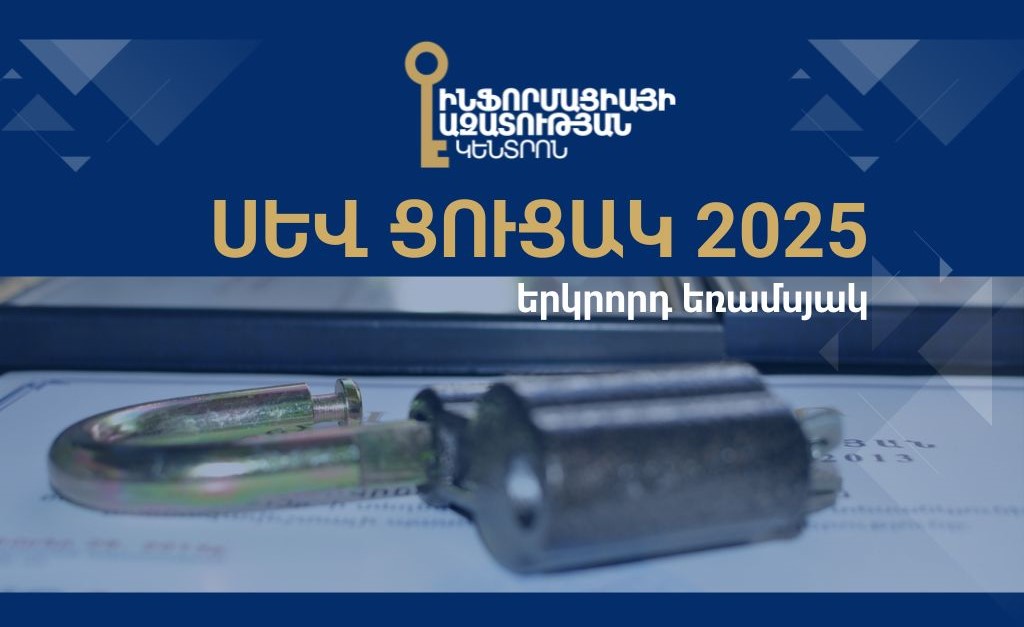Do the political parties have to work publicly? Do they have to, on their own initiative or in case of demand thereof, provide information about themselves and their activities? To answer these questions, we should address the Armenian legislation on freedom of information; however let’s first speak about the related international documents.
European Union: There is not any regulation whatsoever that would, on a national level, oblige political parties to respond to information requests or to publish on their own initiative certain information. However the EU defines certain conditions for those political parties operating in Europe which apply to the EU to get funding. For instance, in 2003/2004, according to Article 6 of the EU Regulation, the applying party, among other conditions, must annually publicize its incomes and expenses as well as its asset and liability statements, and funding sources, mentioning the donor list and the amount of donation per donor, except for those exceeding 500 Euros.
The United Nations Convention against Corruption: The UN Convention against Corruption addresses the financial transparency of the political parties, defining in Paragraph 3 of Article 7 that: “Each State Party shall also consider taking appropriate legislative and administrative measures, consistent with the objectives of this Convention and in accordance with the fundamental principles of its domestic law, to enhance transparency in the funding of candidatures for elected public office and, where applicable, the funding of political parties.”
The Council of Europe’s Recommendation on common rules of fighting corruption during funding of political parties and election campaigns: The Council of Europe’s Recommendation Rec (2003)4 is the most comprehensive international document defining guidelines for good and transparent practices of political parties on common rules against corruption during financing of political parties and election campaigns. This document includes elements of respective previous recommendations and recommends the nations fighting corruption to analyze how these recommendations are applied. Although this recommendation does not address the citizens’ right for freedom of information and the passive means of transparency provided by information holders, such as information requests; however a number of common rules in the Recommendation refer to provision of transparency on the initiative of information holders themselves.
The common rules of the recommendation on ensuring transparency on the own initiative of an information holder state that:
– Each type of donation should be made public and not secret (Article 3.a);
– The donations received by political parties should be made public especially in the cases when they exceed the fixed ceiling (Article 3.b.i.);
– States should require political parties, at least annually, to publicize their financial statements or at least a summary of those statements and should include information on donations and expenditures (Article 13);
– An independent monitoring should be conducted that would include data on the publication of accounts (Article 14).
The rules of the Recommendation defines that the respected accounts should be published (Article 11), including information on all donations provided by legal entities (Article 5.i) and all expenditures on election campaigns (Article 9).
RA legislation: Article 7 of the RA Constitution stipulates the obligation of political parties to work publicly; it reads: “Political parties shall ensure the openness of their financial activities”. This means that the financial activities of political parties should be open and transparent, and information about the financial activities of the political parties should be publicly available.
Section 2 of Article 8 of the main legal act regulating activities of political parties, the RA law “On Political Parties” prescribes that, among other principles, activity of political parties is based also on the principle of publicity. Pursuant to Section 4 of the same law, “Political parties function publicly; their founding and program documents are published for general awareness”. Section 2 of Article 3 of the RA “Law on Political Parties” defines that the main documents representing the activity of any political party – the Bylaws and the Program of the party reflecting the goals and objectives of the party – should be published through mass media.
The main legal act regulating the right for freedom of information is the RA law “On Freedom of Information”. Therefore, let’s address this law to determine whether or not the political parties are considered as information holders, based on the provisions of the RA law “On Freedom of Information”.
The RA law “On Freedom of Information” defines that state and local self-government bodies, state institutions, organizations sponsored by the state budget as well as organizations of public importance and officials thereof are considered to be information holders. The law does not address political parties specifically, therefore it should be made clear to what extend the political parties are embraced in any of the groups of information holders defined by the RA law “On Freedom of Information”.
Thus, from the definition of political parties it is clear that political parties are not state governance bodies, local self-governance bodies or state institutions. Let’s now address the reference of parties to organizations funded by budgets or those of public importance.
Political parties as organizations of public importance. According to Section 4 of Article 3 of the RA law “On Freedom of Information”, organizations of public importance are: private organizations having monopoly or a dominant role in the commodity market, as well as non-governmental organizations delivering services to the public in the healthcare, sport, education, culture, social security, transport and communications, and utilities.
From the concept of political parties it proceeds that political parties cannot be organizations having monopoly or dominant position in the commodity market since the political parties as such are not involved in entrepreneurship. In addition, Section 3 of the RA law “On Political Parties” defines that the purpose of the activity of political parties is to participate in the political life of the society and the state; while Section 4 of Article 3 of the RA law “On Freedom of Information” does not say anything about the political sphere. In addition, even if the goals of the political parties reflected in their bylaws and programs, whether they are of healthcare, culture or social character or refer only to education or sport, political parties will not be considered as organizations of public importance anyway, since they do not render any services to the public in the above spheres.
Therefore, based on the above statements, political parties are not considered to be organizations of public importance and are not covered by the law of the RA “On Freedom of Information” as organizations of public importance.
Political parties as organizations funded by budgets: According to Article 24 of the law of the RA “On Political Parties”, the monetary means of a political party are formed also from budget funding. Article 27 of the same law sets out the procedure of state funding of the activities of political parties. According Paragraph 1 of Article 27. “State funding of political parties is performed from the means of the state budget of the Republic of Armenia”. However, not all political parties receive allocations from the budget: according to Article 27, “State budget means are allocated to those political parties (party alliances) whose electoral list during the last elections to the National Assembly has received at least 3 percent of the sum of the total number of votes cast in favor of electoral lists of all parties that have participated in the elections and the amount of inaccuracies”.
Thus, political parties receiving funding from the state budget are considered to be information holders based on the logic of the RA law “On Freedom of Information”; and all those rights and liabilities set out by the RA law on FI for information holders apply also to these political parties. And those political parties, who do not receive funding from the state budget, are beyond the coverage of this law.
Although political parties as such are not included in the RA law “On Freedom of Information”, however a number of other legal acts define the obligation of political parties to work publicly and to publish information. For instance, as mentioned before, the Armenian Constitution stipulates that “Political parties ensure the publicity of their financial activity”.
According to the RA law “On Political Parties”, any political party should publish information about its founding congress. According to Paragraph 1 of Article 12, “Organizers of the Founding Congress, at least one month prior to the Founding Congress, publish through mass media the venue and the time of holding the Founding Congress, as well as the main provisions of the draft Bylaws and the draft Program of the political party”.
The RA law “On Political Parties” regulates also the issue of publicity of the financial activity of political parties. In particular, Article 22 of the law defines that a political party shall publish through printed media a report on the use of its property specifying the source of its formation. Another article of the law, Article 28, defines the obligation of a political party to publish its financial reports. According to Paragraph 2 of this article, “A political party, no later than 25th of March of the year following the reporting year, publishes its financial report through mass media”. Paragraph 3 of the same article specifies what information should be included in the financial reports of political parties: “The report on the means received and spent during the reporting year shall contain data on sources and volumes of means entered into the account of the party, spending of such means as well as the property in possession, specifying its value”. According to Paragraph 6 of Article 28 of the law “On Political Parties”, “The source of a donation received by a political party, the value of which exceeds the hundred-folds of the minimum salary prescribed by the law, shall be specified in the financial report of the party.” This means that this data is also included in the financial reports of political parties and is subject to publication.
Obligatory publication of information about political parties during elections and election campaigns is defined by the RA law “On Elections”. In this case, however, publication of information is performed not directly by the political parties themselves but indirectly by the Central Electoral Commission.
Thus, Paragraph 4 of Article 6 of the Electoral Code of the RA enables political parties to submit to the Central Electoral Commission their election programs in the electronic form defined by the CEC to be posted on the Central Electoral Commission’s website. Following the submission, the Central Electoral Commission shall post those programs on its website prior to the end of the following working day.
According to Paragraph 6 of Article 6 of the Electoral Code of the RA, for registration of electoral lists of political parties (party alliances), political parties (political parties included in party alliances) participating in the elections under the proportional system submit to the Central Electoral Commission a declaration about the party’s property and financial means. According to Paragraph 7 of the same Article, in a three-day period following the day of submission of the declarations of political parties, the declarations shall be posted on the website of the Central Electoral Commission.
The publicity of the activity of political parties in the election process is addressed by Article 27 of the RA Electoral Code; Paragraph 1 of this article defines that political parties, party alliances submit the declaration on payments to their pre-election funds and the use thereof to the Oversight and Audit Service of the Central Electoral Commission. The declaration specifies the chronology of the payments made to the pre-election fund, the amount paid, expenditures made for purchasing each service, property, and goods prescribed by Part 2 of Article 26 of the RA Electoral Code , the time they were made, data of the documents confirming that the expenditures were actually made, and the amount of money left in the fund. According to Paragraph 4 of Article 27, these declarations are published in a three-day period following submission thereof, by posting them on the website of the Central Electoral Commission.
International experience: Political parties as such, even though they are not covered by the law of the RA “On Freedom of Information”, shall nonetheless operate publicly; their public practices and their responsibility to inform are addressed both by the RA Constitution and the RA law “On Political Parties” and the RA Electoral Code. Now let’s see what status do political parties, as information holders, have in other countries.
In Bulgaria, those political parties that receive allocations from the state are considered to be information holders.
In the United Kingdom (Scotland) political parties are not covered by the legislation on freedom of information, however the financial transparency of political parties is regulated by other legal acts not related to freedom of information as well as by the electoral commissions.
The Information Commission in Macedonia has decided to exclude the financial reports of political parties from the sphere of freedom of information and not to recognize political parties as information holders.
In Serbia and Slovenia political parties are not covered by the law regulating the freedom of information. In Latvia political parties as such are not included in the freedom of information sphere. Publicity and transparency of political parties are regulated by different specific norms. In the Russian Federation political parties are considered to be public unions and are not considered to be subject to the freedom of information.
In Croatia political parties are not covered by the law on freedom of information, however, pursuant to the legal act on funding of political parties, political parties in this country are obliged to publish their annual financial reports on their websites on their own initiative.
In Indonesia political parties are considered to be information holders. The related Indonesian law on freedom of information obliges political parties to publish, ot their own initiative, a number of informations (principles and goals, the general program, the mechanism for making decisions, the decisions of the party, etc.).
In Check Republic political parties as such are not included in the related legal act on freedom of information and are considered as non-profit organizations, however they are obliged to publicize fairly voluminous information on their financial activity and expenditures.
It should be mentioned also that courts in a number of countries have decided that certain information about political parties should be accessible. Such decisions have been made by courts in Canada, Costa Rica, India, Israel, and Mexico.











